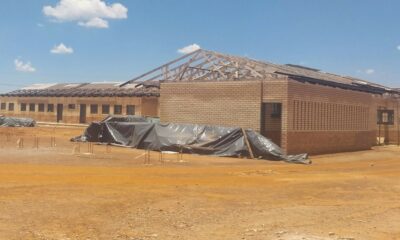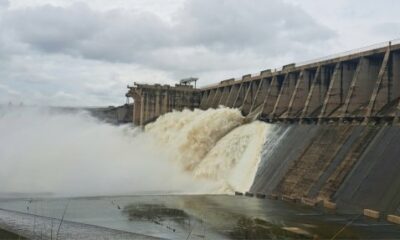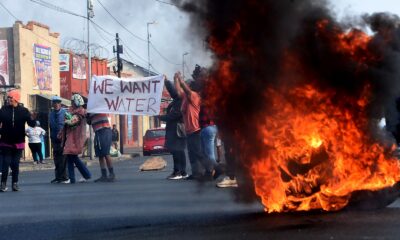News
Minister Majodina’s Water Tank Plan: Will It Ease Joburg’s Water Woes or Just Buy Time?

Why water tankers are back in the spotlight
For residents of Johannesburg, water shortages have become a stubborn feature of city life. Bursts, leaks, and failing pipelines have left many households dependent on tankers for supply. Until now, those trucks have usually been rented through private contracts that cost municipalities millions while leaving little room for accountability.
Water and Sanitation Minister Pemmy Majodina wants that to change. Her new plan calls on municipalities to purchase and manage their own fleets of water tankers. The City of Johannesburg has already taken the first step, securing 20 tankers that will now belong to the municipality itself.
The aim is to make emergency supplies more affordable, reliable, and transparent.
A rare case of political consensus
Majodina’s proposal has won support from an unlikely corner: the Democratic Alliance. DA shadow MEC Nico de Jager described the move as sensible and overdue, pointing out that water systems anywhere in the world can suffer bursts. Having tankers on hand ensures residents do not wait days for red tape to clear.
But De Jager also sounded a warning. Unless Johannesburg tackles its underground crisis, tankers will remain a sticking plaster. The city is still reliant on 2 400 kilometres of ageing asbestos pipes. These brittle pipelines, concentrated in neighbourhoods such as Ivory Park, Alexandra, Roodepoort, Randburg, and Parktown, are responsible for many of the bursts that leave taps dry.
Beyond tankers: accountability and leaks
Majodina has emphasised that tankers must never become a permanent solution. Instead, they should be used as a short-term measure during maintenance or unexpected outages. She criticised private contracts for their lack of transparency, saying it is often unclear whether the promised 10 000 litres per delivery ever reach communities.
Her department continues to fund municipalities through two major grants, but misuse of those funds remains a problem. Some projects have been abandoned midway, with failures dating back to 2010. The Hawks have already recovered R23 million from companies that pocketed money without delivering water projects.
At the heart of the minister’s message is one blunt reality: until leaks are repaired, no amount of tanker deliveries will restore confidence. Leaks waste supply, increase municipal debt, and trigger protests in communities that feel abandoned.
The bigger picture for Joburg
The debate over tankers reveals the tension between quick fixes and long-term investment. Majodina’s plan could save money and give municipalities more control, but it does not erase decades of neglected infrastructure.
If the tankers are used as a safety net while old pipes are urgently replaced, the plan could buy Joburg much-needed breathing space. If not, residents may continue to see tankers as a symbol of temporary relief rather than lasting solutions.
For now, the sight of 20 new municipal tankers may bring hope to thirsty suburbs. Whether they mark the start of real change depends on what happens underground.
Also read: Edgar Lungu’s Family Loses Final Appeal in Burial Dispute with Zambian Government
Follow Joburg ETC on Facebook, Twitter, TikT
For more News in Johannesburg, visit joburgetc.com
Source: The Citizen
Featured Image: Science | HowStuffWorks



























